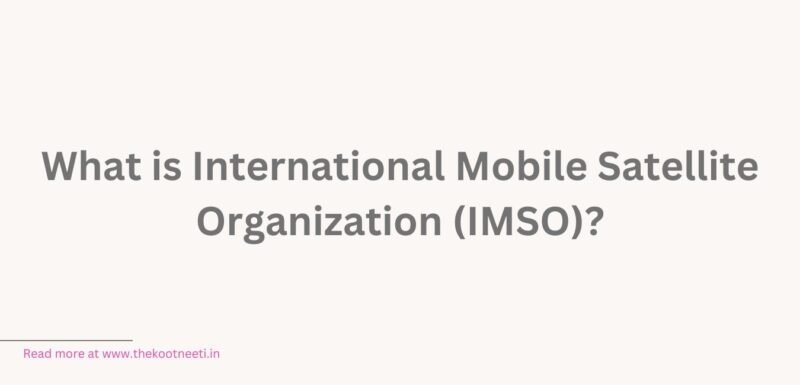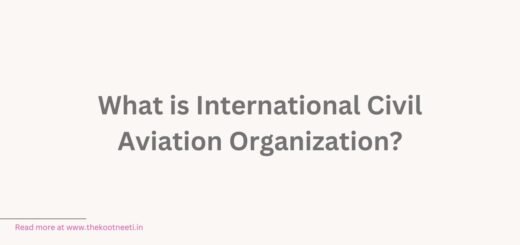International Mobile Satellite Organization

The International Mobile Satellite Organization (IMSO) is an intergovernmental organization that is responsible for the management and coordination of satellite-based communication services for the maritime, aeronautical, and land mobile sectors. The organization was established in 1982, and it has member countries from all regions of the world. The IMSO’s headquarters are located in London, United Kingdom.
The IMSO’s main functions include:
- Coordinating the use of satellite-based communication services: The IMSO works with member countries and other stakeholders to ensure the efficient and effective use of satellite-based communication services for the maritime, aeronautical, and land mobile sectors.
- Providing technical assistance and capacity building: The IMSO provides technical assistance and capacity building to member countries to help them develop and improve their satellite-based communication systems and services.
- Promoting international cooperation: The IMSO promotes cooperation and dialogue between member countries and other stakeholders on issues related to satellite-based communication services.
- Conducting research and development: The IMSO conducts research and development activities to support the development and improvement of satellite-based communication systems and services.
Few key standards set by IMSO
The International Mobile Satellite Organization (IMSO) develops and promotes standards and guidelines for the use of satellite-based communication systems and services in the maritime, aeronautical, and land mobile sectors. Some examples of key standards and guidelines set by the IMSO include:
- The IMSO’s Safety of Life at Sea (SOLAS) standards: These standards outline the requirements for the use of satellite-based communication systems and services on ships to ensure the safety of life at sea. The SOLAS standards cover areas such as the carriage of satellite-based equipment on ships, the training of personnel, and the use of satellite-based services for emergency communications.
- The IMSO’s Aeronautical Mobile Satellite Services (AMSS) standards: These standards outline the requirements for the use of satellite-based communication systems and services in the aviation sector. The AMSS standards cover areas such as the carriage of satellite-based equipment on aircraft, the use of satellite-based services for air traffic control, and the provision of in-flight entertainment and connectivity services.
- The IMSO’s Land Mobile Satellite Services (LMSS) standards: These standards outline the requirements for the use of satellite-based communication systems and services in the land mobile sector. The LMSS standards cover areas such as the use of satellite-based services for public safety communications, the use of satellite-based systems for tracking and monitoring vehicles, and the provision of satellite-based services for disaster response and humanitarian assistance.
Here are a few examples of IMSO capacity-building programs:
- The IMSO’s Technical Cooperation Programme: This program provides technical assistance and capacity building to member countries to help them develop and improve their satellite-based communication systems and services. The program focuses on areas such as satellite spectrum management, satellite system planning, and the training of personnel.
- The IMSO’s Safety of Life at Sea (SOLAS) training courses: The IMSO provides training courses to member countries to help them implement and enforce the SOLAS standards for the use of satellite-based communication systems and services on ships. The courses cover topics such as the carriage of satellite-based equipment on ships, the use of satellite-based services for emergency communications, and the training of personnel.
- The IMSO’s Aeronautical Mobile Satellite Services (AMSS) training courses: The IMSO provides training courses to member countries to help them implement and enforce the AMSS standards for the use of satellite-based communication systems and services in the aviation sector. The courses cover topics such as the carriage of satellite-based equipment on aircraft, the use of satellite-based services for air traffic control, and the provision of in-flight entertainment and connectivity services.


















